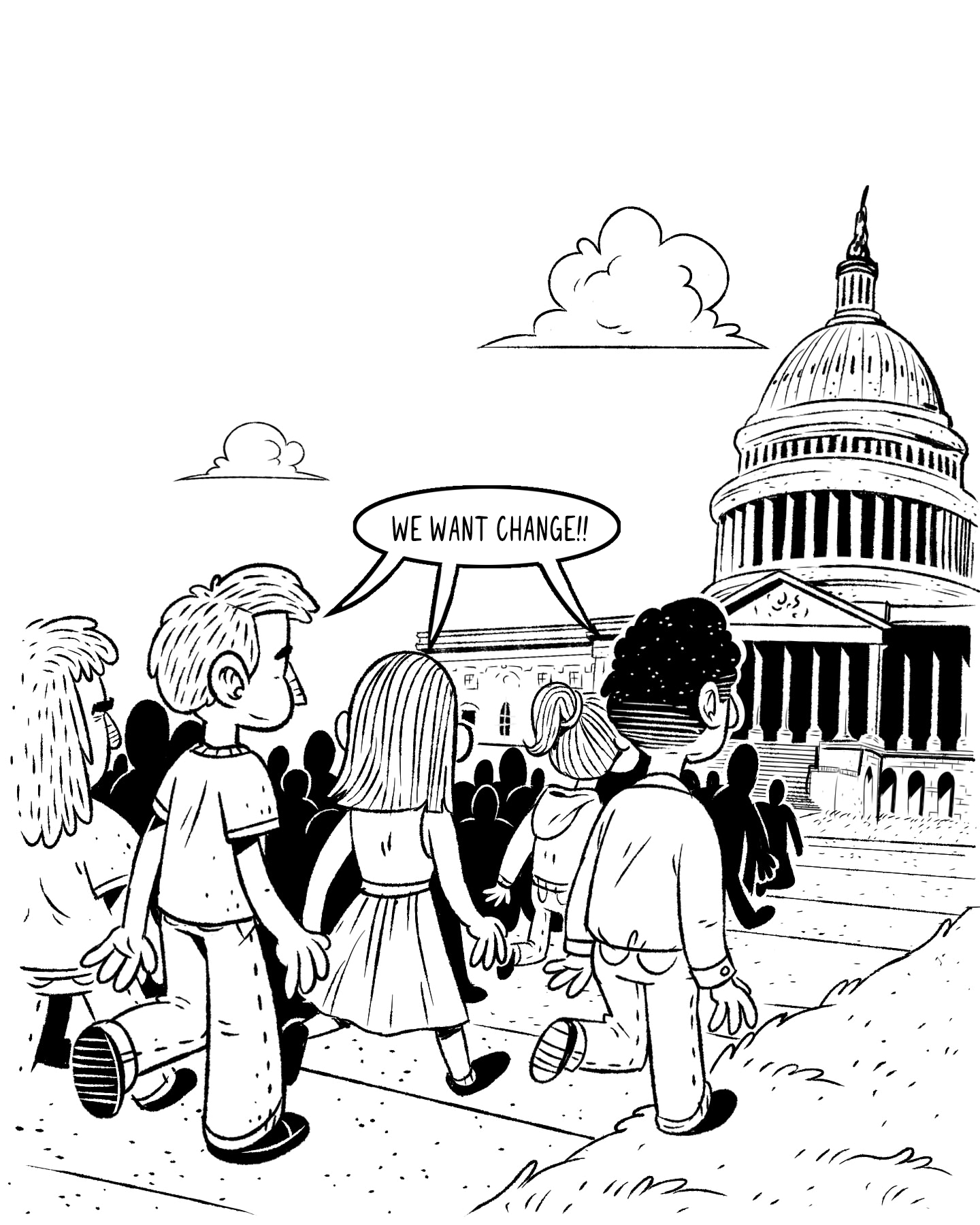
January 30, 2021 – The MI generation constitutes the largest and most powerful voting bloc in the United States. Through its voting and economic power, it can transform American laws and corporate policies by engaging in the political process and public deliberations. Best of all, this process is free. The MI generation’s political and economic power will continue to grow as it becomes a larger segment of society as consumers and voters. However, the MI Generation is presented with the numerous challenges, such as student debt, climate change, inequality, and a divided nation. A nation that is governed by elected officials who seem to be interested in keeping their jobs than DOING their job. Their response and inability to lead the nation during the Covid-19 pandemic suggests that their priority is self-preservation and tribal loyalty than saving innocent American lives. At the same time, they are using the MI Generation as an automated teller machine (ATM) to fulfill their appetites for unchecked federal spending without any plans to pay for it.
The MI Generation can be defined as those born between 1980 and 2018 and are 51% of the population. It makes up 42% (ninety-eight million) of the voting population, large enough to be a decisive factor in any election. The MI Generation includes millennials and subsequent generation known as Generation Z. There is no precise date that defines millennials or Generation Z. However, Americans born between 1980 and 1995 are considered millennials, and those born after 1995 till 2012 are generally known as members of the i-Generation, iGens, or Generation Z. They have witnessed Covid-19 and the deaths of over 400,000 innocent Americans in 2020, dot-com bubble, the housing and financial crisis, two wars, and a divided nation, all within their short life span. With that backdrop they will have a consequential impact on national politics and corporate America for rest of the twenty-first century.
Political Clout
The MI generation is diverse and reluctant to identify with either one of the two major political parties. However, it is overwhelmingly in support of a third political party, according to an NBC/GenForward poll conducted in November 2017. Seventy-one percent say the Republican and Democratic parties do a poor job of representing the American people. More Americans have consistently identified themselves as independents over the last three decades instead of belonging to either of the two major political parties, Democratic and Republican. Yet, they have no representation. In a polarized political climate of Washington, DC, the MI generation, with its voting power, can influence the congressional elections going forward.
In recent American history, younger generations have been at the forefront of ending the Vietnam War and fighting for civil rights, women’s rights, and gay rights. The Vietnam War, where fifty thousand Americans and millions of Vietnamese lives were lost, would not have ended if it were not for them. In keeping with that tradition, college students’ commitment to activism and political engagement is at an all-time high, according to a UCLA study. This activism played out during 2020 presidential election where 65% of them voted for Joe Biden in 2020 to become the president of the United States against President Trump. They may even serve as an impetus toward the birth of a third major political party that is socially and fiscally responsible. Speaking of fiscal responsibility, the MI generation holds enormous economic power.
Economic Power
The MI generation and the generation after them will gain greater economic power as they move into the workforce, build families, and purchase homes and new cars. Members of the MI generation, being 170 million strong, are the largest consumers of goods and services. They are estimated to have over $1.4 trillion in annual purchasing power by 2021—enough to influence corporate decisions.
They are conscious of corporate social responsibility (CSR) in both their consumption and employment decisions. They are willing to pay a premium for sustainable products and verified packaging and choose companies with higher CSR reputations. In order to provide transparency in accordance with millennials’ preferences, 90 percent of Fortune 500 companies publish sustainability reports.
The MI Generation’s influence on corporate America is reflected by the Nasdaq Global Millennial Opportunity Index (NQGMOI). GENY, an Exchange Traded Fund (ETF) tracks that index and was one of the best performing consumer cyclical heavy ETF in 2020. The NQGMOI is designed to provide exposure to companies within the Nasdaq Global Index that are considered to be driven by Millennials.
The millennial generation places a high value on finishing school, followed by economic security, as part of moving to adulthood and forming a family union. On average, almost 40 percent of millennials in the workforce have a bachelor’s degree, which is almost 10 percent higher than the baby boomers when they were in the same age range. Covid-19 has created an uncertainty in job market since March 2021. However, as the virus gets under control and economic recovery ensues, the MI Generation will be among the first cohorts to gain back lost jobs.
The MI Generation represent agents of change. Their influence in the 2020 election and elevating their concerns on climate change and social injustice in public discourse is just the beginning. The MI Generation has been at the forefront technological and economic transformation as well and has created millions of high paying jobs. This is what the MI generation is all about.
